Despite 17-0 loss, Hazara girls keep spirits high
Coach Changezi talks how he’s fighting to keep young footballing dreams alive
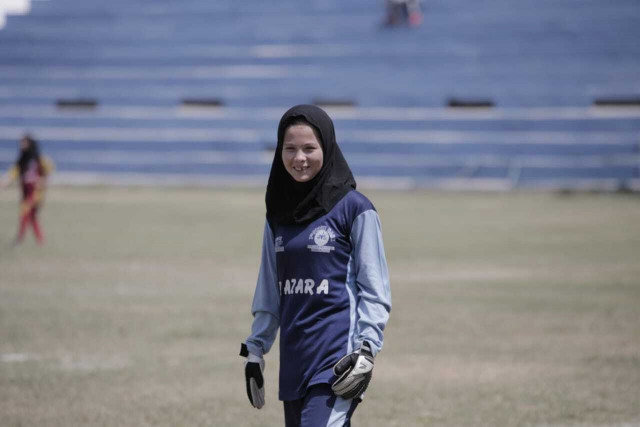
There are giggles, then some adoring smiles, then some more giggles and then serious dreams of being international footballers. These are the dreams of young girls like Komal Rehman and Fizza Batool, who belong from Manghopir, from Hazara community, and they are dreaming with the whole community, with mothers believing in their daughters and Hazara Girls Academy coach and owner Ali Changezi selling his precious exotic birds just to keep the love and the hope alive.
The dream is true.
“Hum tou haar gaye (we lost),” Komal, 11, said as she describes what cutting teeth at the national championship is like, playing against the former national champions Wapda. It is hard not to laugh with Komal, and not to admire the girls when speaking to them as Komal goes on. “I feel okay. When I’ll grow up, I think I can be a better footballer when I’ll grow up. I can play better than them when I get older. I want to be an international footballer like [Cristiano] Ronaldo.”
Spectacular would be an understatement, when it comes to Hazara Girls Academy. They lost 17-0 against Wapda at the national championship in their Group A match on Tuesday at KMC Stadium.
The number of goals that they conceded was more than the age of any of the players in the team, all the players are U15, and all the players do wear headscarves, and make sure that they stay focused on football.
It all began from school, where Ali Changezi is a teacher and he was forced to set up the academy because his daughter Farwa asked him a simple question, which was why can girls not play as boys do, and Changezi had no other way to reply to her, except by opening an academy two years ago.
The time passed slowly for Changezi, his players, as the community did not welcome the football club at first, but eventually agreed to let the girls play on one condition.
‘Pardah (veil) is necessary. Our elders have said that if they can do pardah, they can play,” explained Changezi to The Express Tribune. “At first the idea was just rejected. There were also concerns that I am a man and that I should not be training girls, and this was just the beginning of troubles for us.
“I started out this club, because although I love cricket, I like to play it too. My daughter once asked me that why she can’t play sports the same way that I can, and I had no answer. So I decided that I can open this club, on my daughter’s name Farwa, but then I thought this is about the community, our Hazara community. I saw that my daughter really liked football, I have played football too for Hazara United locally, so it was not a matter of choice after that. It was something I had to do, despite the opposition. I had to talk to the parents, I asked the school administration if they can help, and they said that can’t help with anything else but with the ground. So, we play at our school ground, we train there.”
Ali said that even his own wife and mother did not like the idea at first, but when the club started to play local events in Karachi and Sindh, they changed their minds, and right before the national women's championship he got the blessings of his own family members too.
“Right before this championship they told me that I shouldn’t quit. After so much resistance, and so much work we can’t just quit, and they are fully supporting me and the club. In fact our players, two of the mothers, have joined in as secretaries, and they are with the girls all the time. Even at the tournaments cheering for the players and supervising, so that the parents and the elders can be relaxed that their girls are with responsible women, “said Ali.
“I had to explain to everyone in my community that no field, no occupation, no societal structure is complete without the participation of women in it, and that is the truth. If their concerns are about men being present, then the girls can’t go to schools either, they should not be able to go to madrasas too, so they understood what I was saying and started supporting us.
He added that at one point one of the player’s father had told her that she cannot continue playing if the team keeps losing, so Ali had to make sure that the playing strategies help them not only win on the field, but the confidence of their families.
“One of our players she had this ultimatum from her father in a tournament, an U23 futsal event in Karachi earlier this month. She was so worried about not playing football again, she ended up becoming the top scorer at that tournament, and then her father agreed to let her continue. This is the kind of passion my players have and I want to see them thrive,” said Ali.
On the other hand, Hazara Girls Academy captain Fizza Batool,14, is a Lionel Messi fan and wants to play serious football, but feels that for this championship her teams need to be more defensive in the field against players who are clearly stronger and bigger.
“I love football and I can say we’ll all be better than the way our opponents are now when we’ll get to their age. I love playing football and I want to do it better. My mother really support me. We play at the school and even though we couldn’t play football for three to four months I missed it so much.”
‘Had no idea about football two years ago’
Komal and Fizza’s mothers have come forward as women who are ready to make the change for their daughters, as Syeeda Rehman says, “I want to support my daughter is every way, and football is a great sport, now that I see it.”
Syeeda have been a traditional mother and a wife in Manghopir, however it all changed and now they train together regularly to assure that the girls in her community are playing football and gaining confidence.
“I did not know what football was, but Komal really loves it, and I have no reason to not support her. Changezi has really been working hard, so I had to come forward. Now the girls can talk to me about their problems. The things that they hesitate to talk about in front of any of the males, they can talk to us, in fact my husband has started to back us too. It truly is a change, and I want to see our daughters become international players, become athletes and make us proud,” said Sayeeda, after two years, watching the sport grown in her community, she wishes she can help is more ways and even take up a coaching course too.
Sayeeda feels that talking to parents throughout this time was worth the effort, as seeing the girls compete in bigger events make her proud.
“It was a very difficult day. They conceded a lot of goals against Wapda. It is a big team, but I just want to say our girls played very well. They gave their all in it.”
Birds come through in making ends meet
Running an academy is hard, especially when one is all alone and financially there is no support. Ali said that when the tournaments and the organisers do not take care of the traveling expenses, he sells his birds to make ends meet.
“I sell my birds. I breed them and I sell them in pairs when there is no other way to get money. Mostly there is no other way to get money for the training sessions and for travelling. It all becomes difficult and that is where my birds come in. I started breeding three years ago, a year before the academy started. It is amazing how this is all coming about, but I have no financial support, we have no backing that way,” said Ali.
He further elaborated that the Hazara community in Quetta is more supportive of sports among girls and boys compared to the community settled in Manghopir at the moment, and he is hoping for the change to come sooner than later.
He added that the Pakistan Football Federation is giving good sum for the participating sides, and that is helpful. He is also hoping that his team will perform even better at the development stage that will start after the group stages and the weak teams that will see exit in the first round, will get to play amongst each other later on.
“It is a good step. We are losing badly but we are looking forward to the development stage matches. I would want my team to be a little bit more aggressive in our remaining matches,” concluded Ali, hoping that things will change for women’s football in Pakistan, and mostly for his players who are young and dreaming of becoming international footballers one day, not just playing national women’s championship.

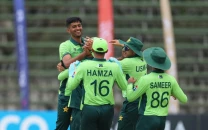

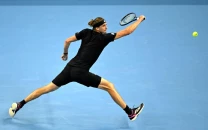
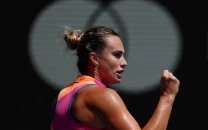

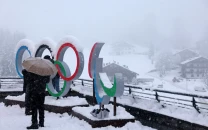












COMMENTS
Comments are moderated and generally will be posted if they are on-topic and not abusive.
For more information, please see our Comments FAQ